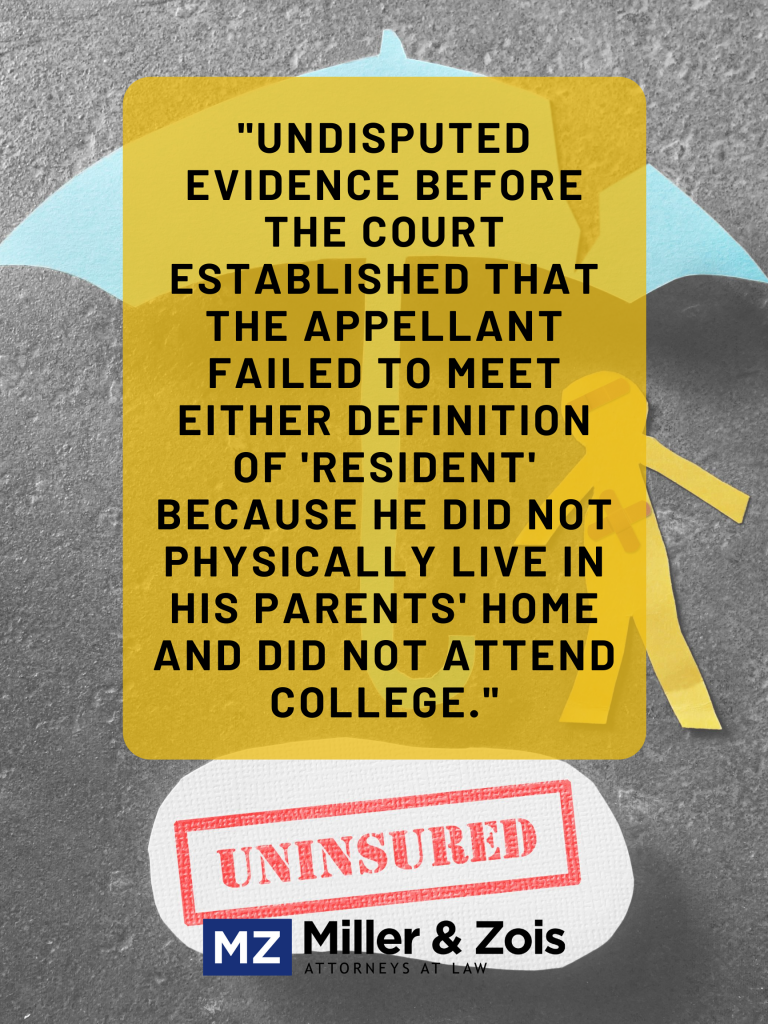The Maryland Court of Special Appeals had occasion this month to consider what makes up a resident relative for uninsured motorist coverage in Mundey v. Erie Insurance Group. Here, The Maryland intermediate appellate court found a Prince George’s County man who had been living with his grandmother in Waldorf, Maryland (Charles County) for almost a year not to be a resident relative of his parents who lived in Lusby, Maryland and therefore his parents’ uninsured motorist coverage with Erie Insurance could not apply to his auto accident.
The Plaintiff, who the Court noted was not a full-time student, lived with his grandparents for the 11 months preceding the auto accident. During that time, the Plaintiff visited his parents’ home approximately four to six times, spending the night on Thanksgiving and Christmas. On these holidays, Plaintiff slept on an extra bed in his younger brother’s room because they had converted his bedroom for other uses after he left. Erie Insurance’s accident lawyers argued that under these facts, the jury should not deem the Plaintiff a resident relative and could not recover from Erie Insurance for his personal injuries from his auto accident under his parents’ uninsured motorist policy. Plaintiff’s personal injury lawyer, Waldorf attorney Michael J. Schreyer, contended that “resident,” as defined in Erie Insurance’s policy, limits the statutorily required uninsured/underinsured motorist coverage and makes up an impermissible exclusion from coverage, thus violating the public policy goals of Md. Code Ann., Ins. § 19-509.

The Maryland Court of Special Appeals disagreed with Plaintiff’s attorney, ruling that Plaintiff was not a “resident” of his parents’ Lusby home as defined by their insurance contract with Erie Insurance. The court reasoned that according to the policy, the Plaintiff would be a resident only if he physically lived in his parents’ household, is under the age of 24, and attends school full-time. Writing for the court, Judge J. Frederick Sharer found that the “undisputed evidence before the court established that the appellant failed to meet either definition of ‘resident’ because he did not physically live in his parents’ home and did not attend college.”



